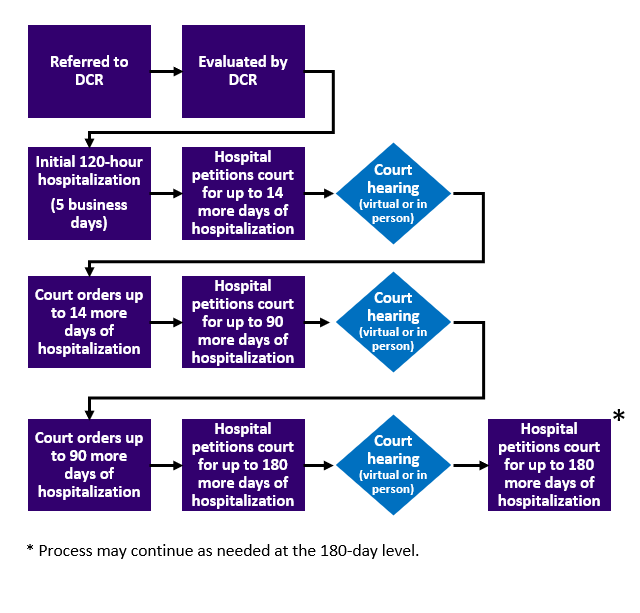The Involuntary Treatment Act (ITA) refers to court-ordered mental health or substance use disorder treatment that is a civil legal process – not criminal. In Washington State, it is not a physician who decides if a person needs to be court-ordered for involuntary psychiatric care. Instead, this decision is made by specially trained mental health professionals known as Designated Crisis Responders (DCRs).
To be court ordered for involuntary psychiatric hospitalization, the person must meet certain requirements:
Due to a behavioral health disorder (mental health and/or substance use disorder):
- They are a danger to self
- They are a danger to others
- They are a danger to others’ property
- They are gravely disabled
AND
They are unable to engage in an appropriate less restrictive treatment option and require hospitalization
Because this is a legal process, any person on an ITA hold is provided a defense attorney, free of charge. For information specific to a loved one’s ITA status and process, you should speak with their hospital treatment team or refer to the ITA resources linked below.
General overview of the adult ITA process

To learn more about the ITA process and potential ITA court outcomes in King County visit, Involuntary treatment hearings – King County, Washington or King County Crisis and Commitment Services.†
†Includes information on “Ricky’s Law” related to involuntary treatment for people who are determined to pose a likelihood of serious harm as a result of a substance use disorder. Also includes information on “Joel’s Law” through which family members, guardians, conservators, and/or Tribal members may petition the court directly when a Designated Crisis Responder (DCR) has decided not to detain the person, or when the DCR investigation is not completed within 48 hours.
What should I do if my loved one refuses to accept help or is in crisis?
If you or a loved one are experiencing a mental health or substance use crisis, the 988 Suicide & Crisis Lifeline is available 24/7 across the nation. You can call 988, text 988 or chat online for assistance from a trained counselor.
If you or a loved one are in imminent danger, call 911 or go to the nearest emergency department for assistance.